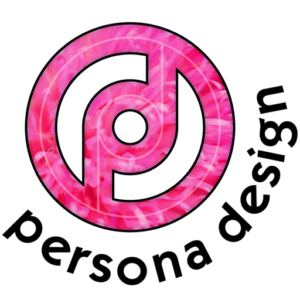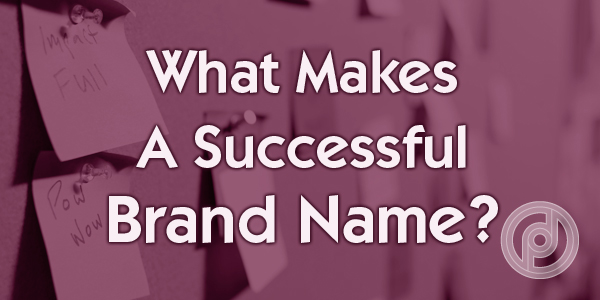
What’s in a Brand Name? Top 8 Successful Naming Principles Explained
Getting the right brand name is crucial for a business. It is a way to communicate to your target market what your benefit is, maximize the impact of your marketing spend and stand out from competitors even in a crowded marketplace.
In this article, we’re sharing with you some simple but powerful principles of effective brand naming. These will help you ensure that your brand names, whether for a company or individual products or services, are more likely to bring you the success you want.
Related: Building a Brand with Big-Brand Know-How on a Shoestring and Doing More With Less
Top 8 Brand Name Principles in Successful Naming
1. A Brand Name is a Way to Add Value to a Product or Service
Strong brands are able to command price premiums over basic commodity products or services which have weak, undeveloped brands. This is because the brand acts as a shorthand promise for all sorts of qualities and benefits that the company offers through its brand. Even for simple commodities, this holds true, which is why consumers pay more for Evian water than for municipal water, why Costa can sell coffee at a markup to the spot market commodity price for coffee and why agricultural fertilisers are sold under brand names.
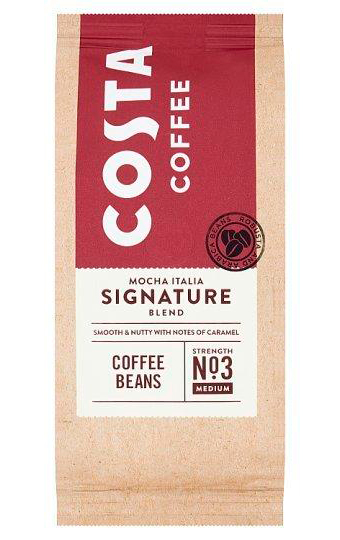
Image via Tesco © Costa Coffee
Related: Profitable Lessons from Luxury Brand Leaders, Brand Positioning for Premium Pricing
If you want customers to pay more for simple consumer items such as household candles, drawing pins or salt, you need to have a brand which elevates them above commodity status. It doesn’t have to be a global entity with the resources of a powerhouse enterprise behind it either. The brand may simply be a well developed offering with a leanly resourced strong agile brand strategy behind it so it’s become a well known local favourite which consumers can remember and ask for by name, regardless of their literacy or language skills.
Related: How Branding Strategy is Different to Marketing
A good example which is widely familiar is Shell. Most providers of energy sources have largely undifferentiated utility products. But competing companies have carved out individual brand personalities which give them pricing power and customer loyalty.
As environmental awareness has increased, alternative energy sources have become more important. A name like “British Petroleum” was so tied to an older fuel type that the company rebranded expensively. The Shell brand, however, though simple has been able to move seamlessly into renewable energy sources, as shown in this video.
Related: Use Psychology in Your Brand Strategy to Create Irresistible Brand Experiences and Increase Sales
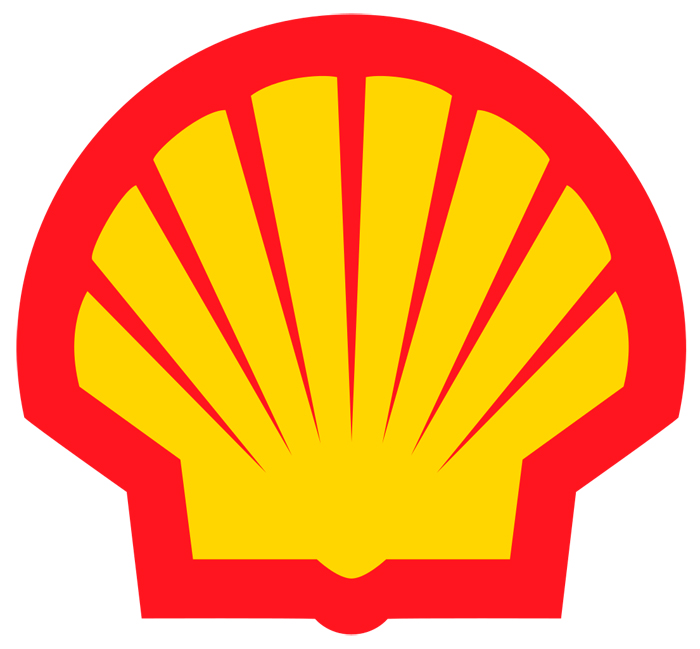
Image via Wikipedia © Shell
Related: What You Can Learn from The Most Iconic Rebranding Strategies of All Time
We know that sometimes it’s a struggle to build a brand strategy that really engages your ideal customers effectively so we’ve developed three different ways of working with us to help you build your brand, depending on your preferences, so if you’d like us to:
- Build your brand for you – find out more here or get in touch [email protected] or ring +353 1 8322724
- Empower you to build your brand – check out the Persona Brand Building Blueprint™ Mastermind here. This is a two-day intensive where you work on your brand with us codifying and mapping out your brand strategy for business growth. Alternatively, join our half-day Branding Accelerator Masterclass for a fast-injection of brand building essentials. Ask about our Personal and Corporate Leadership Brand Alignment Masterclass
- Want a DIY solution? check out our how to build a brand eprogramme here and our how to audit your brand yourself eprogramme here
2. Brand Names Must be Easy to Remember
When you recommend a product, service or experience to someone, it’s natural to mention the brand name to help the person find it. But we’ve all had the experience where we’ve not been able to recall the name, a failure on the part of the brand owner.
Related: Want Your Customers to be Loyal, Super, Raving Fans? What’s Your Brand Promise?
A brand name performs the same function as a calling card, both digitally and traditionally. When someone already knows you, it becomes unnecessary because they know, like, remember and trust your name (assuming you’ve earned that trust appropriately), but in the beginning when you are trying to get your foot in the door, a strong brand name is essential.
A memorable brand name enables the vital link between the customer becoming aware of your offering (product or service, B2B or B2C) and remembering the name so it is easy to request or specify it at a point of purchase or consider during research.
Names which are oddly spelt, neologisms, pseudo-foreign, too simple or confusing may be difficult to remember. Moreover they can be hard to search for online. There is a bar called “Where Bar” – but search online for “Where Bar” and you get overwhelmed by questions about where other bars are, not the address for Where Bar. The same would be true of PWC’s consulting arm which rebranded initially as “Monday” before getting rid of the bland, forgettable name.[1]
Related: What’s In A Brand Name? Lessons Learned From 5 Brands Who Made A Change
3. Good Brand Names are Distinctive
In a crowded field, often competing brands will have similar names. Sometimes these names are derived from the name of the product or category, which can make it even more difficult to differentiate between them.
Think of magazine brands as an example. Many of them have similar names and it is typically when you see a magazine in a shop that you know which one you want. Otherwise, What’s On TV, TV Guide, TV Times and similar titles can seem indistinguishable.

Image via radioandtelly.co.uk
A good brand name should be distinctive enough that it can be ordered online without error, identified immediately on shelf or recommended to someone who then remembers the name even when confronted with competitors at the point of decision making.
A helpful case study of distinctiveness is the Irish dairy brand Kerrygold. The history of Kerrygold is that Irish dairy farmers lacked a brand name to add value to their product. This stuck them in the undesirable territory of commodity pricing, we discussed above, and would be particularly undermining because they sought to enter foreign markets where their product would enjoy no home turf advantage.
So they decided to generate a new brand name which would act as an umbrella for their products. They came up with Kerrygold which is distinctive and subtly suggests high quality simply through the inclusion of “gold”, which is associated with premium quality in general. The brand is tied to nuances of Irish dairy quality, but stands out on its own, as seen is this advertising video.
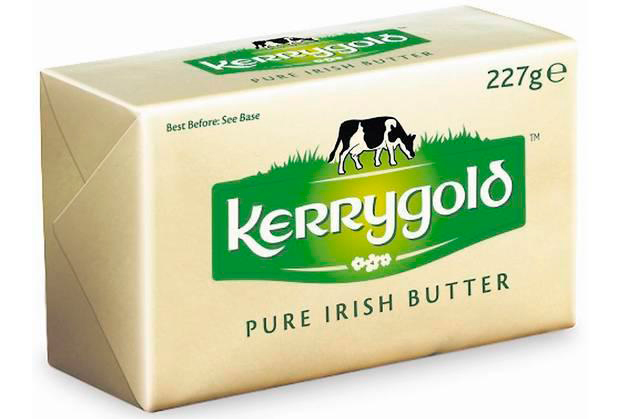
Image via Independent.ie © Kerrygold
Are you a business leader, manager or entrepreneur who wants to re-evaluate your brand name or build your brand strategy so you can effectively increase your sales? Are you curious about how to build or scale a highly successful standout brand? Join one of our branding workshops because they empower you to build your brand, enhance customer experience, expand your market impact and create higher perceived value so you can command a premium.
In fact, the Persona Brand Building Blueprint™ Mastermind is all about fast-tracking you, your brand and your business through the agile brand building, brand strategy process using big-brand know-how with proven systems that get results so you can grow your business faster and more effectively.
If you want a tailor-made solution specifically for your brand then we also provide inhouse bespoke Persona Brand Building Blueprint™ Intensives working with you and your team so you can grow your business faster and more profitably. Contact us to discover more [email protected] or +353 1 8322724
4. Neologism or Made-up Brand Names Can be Successful (But They Must Still be Given Meaning in Terms of What the Brand Stands for or is Associated with)
A lot of startup businesses expend considerable effort trying to choose brand names which help communicate what their products do, or what they offer to users.
Trying to pick a name which communicates a product or benefit can help, but it is not actually necessary. A lot of well-known brands have been built using brand names which do not have intrinsic meaning. We associate them with their categories or products/services because they are given meaning through their brand strategy so we become familiar with and attracted to them.
From Mars bars to Oracle, many brands have built meaning through their brand strategy and marketing, not an inherently suggestive brand name. An example is Dyson. Like many, the brand takes its name from the company founder and inventor of its eponymous vacuum cleaners. But in itself it means nothing to potential consumers. Once established, the founder’s name can be tied into a brand purpose, vision, mission, values and brand story, such as the many prototypes on which Sir James Dyson worked before launching. But the brand name itself won’t lead to that established status – it needs to be heavily supported with a strong brand strategy and marketing.
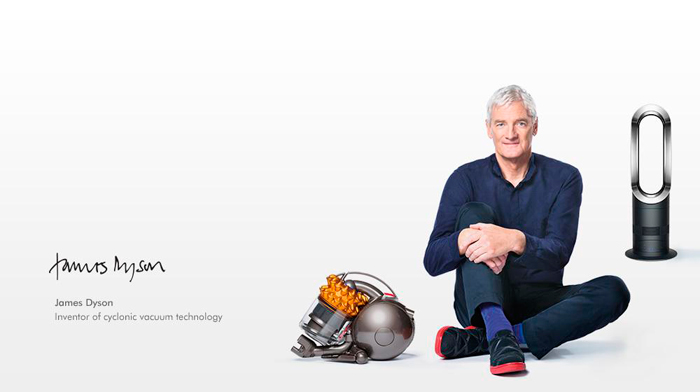
Image via © Dyson
This is not always optimal because considerable work must be done through a strong brand strategy to communicate its meaning compared to if a brand name is communicative in itself it can save on some of the resources needed to educate customers about it. But it does mean that it is not a golden rule for the brand name to mean something – a family name or area name could work as a brand.
A word of caution though if you’re considering a family name or geographical location related name approach. Family names and area names are often not ‘ownable’ or registerable so your competitors can name similarly and ride on the back of all your marketing investment as in the case of Massey Bros.
Related: Family Business Branding and The Secret Drivers to Brand Success
5. A Brand Name Must Work in All Your Markets
It is easy to focus on a brand name which works on the business planned today, but it is also important to think about future expansion because while a brand is built in the present it is built for the future.
That is especially true if expanding into markets which use a different language, or where there may be restrictions on what names can be used for brands. We’ve all read stories of car names which have had rude meanings in other countries and cultures different compared to its brand owners place of origin, so if big car companies can make such an elementary mistake maybe it’s an easier trap to fall into than it seems.
Related: A Brand is For Life, Not Just For Christmas
When the old Andersen Consulting business was rebranded, the new name was Accenture. This is less language and industry specific and so works better across varied markets, cultures and languages, as shown in this video.
Related: Is It Time For A Rebrand? 4 Things To Consider Before Making The Change
7. Focus on Benefits not Attributes in Brand Naming
It can be tempting to brand your business after what it does – this is very common. Just look at trades vans, with the names of “X drain cleaners” or “Y electrical contractors”, all the way through to own label food products in some supermarkets. For people who have not considered the role of marketing in growing their business, this could be an easy though very ineffective and forgettable choice.
It is ineffective because this focus on attributes limits your ability to have a premium brand positioning. Instead, you ought typically to focus on the benefits you bring to a potential consumer, rather than how you do it.
Consider as a case study the success of the personal finance brand Direct Line. It may sound like “Line” is an attribute of a phone service. But in fact, “Direct Line” as a whole is about the benefit not a specific attribute: the ability to connect with your bank without having to go through layers of bureaucracy or long waits. The brand brings that promised benefit to life in their marketing campaigns and materials, as seen powerfully expressed borrowing a character with similar values from a Tarantino film in this video.
If you’d like to discover more about building and maintaining a thriving, high performing, highly profitable standout brand, then get in touch because we’d love to help you make your brand into a profit powerhouse.
- Schedule an appointment — we can meet in person or online
- Allow us to create a customised plan for you
- Let’s implement the plan together
- Contact us [email protected] or ring +353 1 8322724 (GMT Dublin/London time 9:00 – 17:30 weekdays)
Lorraine Carter is a professional speaker delivering talks that inspire and motivate along with masterclasses and workshops that inform and support transformational outcomes fast, and consultancy solutions that solve problems so you can outshine, outperform and leave your competitors way behind.
8. Brand Names Shouldn’t Tie You to a Single Product
When initially starting up a business, many companies have a single hero product or service offering. But no matter how good your product or service is, at some point in the future you may want to expand your business beyond that and add new products or services. Whether you will or not is unknown in the beginning, so keeping your options open is a smart move. Future expansion into new areas of business will be easier to achieve if the brand name isn’t tied too closely to a particular product or service line in the first place.
Related: Brand Hierarchy Fundamentals for Multiple Brands To Avoid Confused Customers or Stagnant Sales
That doesn’t mean you can’t position the brand in a type of offering, but don’t tie it to one very specific articulation of that. Carphone Warehouse as a name made a lot of sense in the days when the predominant type of non-landline phone was a carphone. But that was later overtaken by mobile phones, and later mobile phone retailers became a destination for all sorts of telecoms products and services.
Related: Boring Brand? How To Create a Unique Brand and Market Positioning
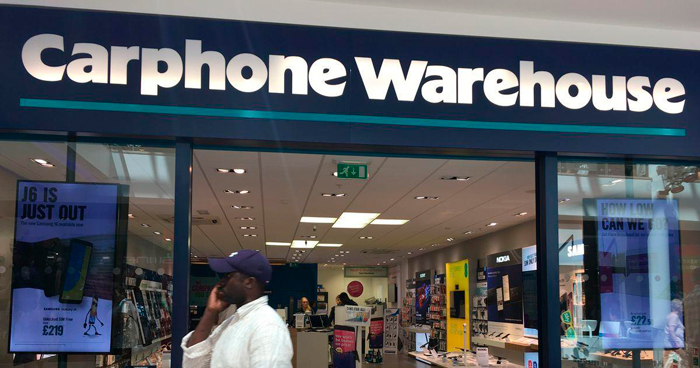
Image via the Plymouth Herald
A name like Carphone Warehouse didn’t communicate clearly that the company offered these other services, but having spent years establishing it it would not be easy or cheap to change without risking losing customers.
Related: 5 Red Flags That It’s Time For A Brand Audit Health Check
Final Thoughts
When parents have a child they typically put a lot of thought into choosing a name. A brand is the same: choosing a name will have a long-term impact. It elevates the product or service above the competition and helps to ensure business success.
A good brand name has certain characteristics: it is distinctive, it is easy to pronounce and memorable, it makes sense for the product or service and it is adaptable enough to cope with future brand growth.
Questions to Consider
- Is your brand name easy to remember?
- How distinctive will target customers find your brand name?
- Does the brand name have meaning? If not, why not?
- How well will your brand name travel across different markets?
- Evaluated on its own, what does your brand name communicate?
- Do you have a brand name focussed on product attributes or benefits to users?
- Do you need to consider a brand audit health check to evaluate the effectiveness of your current brand name or is a brand refresh required?
Your Persona Client Satisfaction Guarantee
- When you work with us, we’ll create a customised brand building plan and strategy with clear investment for you tailored to your specific requirements and preferences
- You’ll know each step of your brand building journey before we start because we’ll discuss it, document it and agree on it with you before work commences
- You’ll have timelines, key milestones and deliverables to evaluate and approve for each stage and part of your brand building process
- Because we know the unexpected sometimes happens we can make adjustments along the way if you need it and if something extra is requested we’ll ensure you’re fully appraised about what that entails before committing
- As we achieve pre-agreed objectives you’ll be able to evaluate your brand building work and strategy in progress, coupled with the outcomes to ensure return on investment
Get in touch today because we’d love to get started helping you build your standout, powerhouse brand so you can increase your profits and leave your competitors way behind.
Email us [email protected] or ring us +35318322724 (GMT 9:00-17:30) and ask about the Persona 7-Figure Business Building & Brand Strategy Mastermind.
